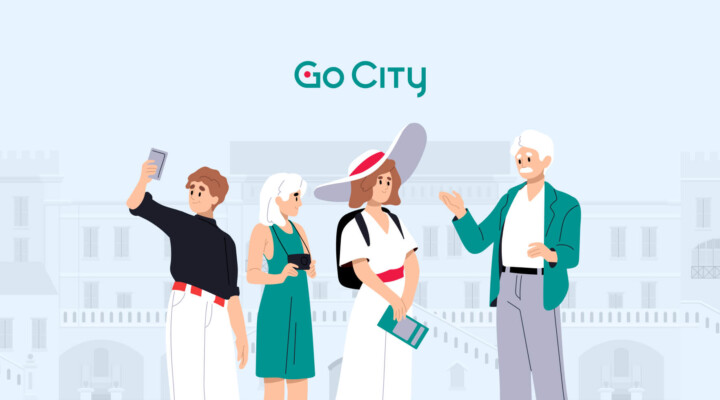For travel bloggers, one of the most powerful revenue streams you can implement is affiliate marketing – especially if you want to earn passive income. But while it’s beautiful to be able to earn money while you’re away from your laptop, to really reap those time-saving rewards, you’ll need a streamlined affiliate workflow.
Luckily, I’ll be sharing one below!
1. Choose affiliate programs wisely
Instead of joining 101 random programs, really think about the content you’re creating and what your audience wants from you.
From there:
- Join at least one affiliate program for all of your regular purchase actions (e.g., hotels, tours, and travel insurance)
- Look for programs that would help solve your audience’s problems and pain points
As you decide which programs to join, you need to think about your actual payout, not just the commission. The average booking value is as important as the reward rate. For example, 100% of $1 is still $1, while 10% of $100 is $10.
It’s also worth noting cookie duration, especially for higher-ticket products and services that may require your reader to take some time to consider the purchase, plus other favorable payment terms, like recurring commissions or the ability to earn on free trials.
(On Travelpayouts, most partner programs offer 30-day cookie lifetimes. Some, like DiscoverCars.com, offer 365 days.)
In short, you want to make sure you’re joining the best possible programs that will help your audience while truly increasing your income.
2. Simplify your program management
While some people join programs directly through a brand, using partnership platforms like Travelpayouts simplifies things by letting you manage all of your programs in one place.
Not only can this help you quickly and easily check analytics and read reports, it also means you won’t miss out on any payments. I admit there have been times I’ve realized months or even years later that I had payouts sitting in programs I’d forgotten about. It’s no use earning money if it’s not in your bank account!
Speaking of money, the other major benefit is that all of your programs within the platform work together to help you meet your payout minimum, as opposed to relying on a single program to get there.
Plus, in many cases, the reward you receive is exactly the same as you’d get direct programs – or even higher, because of the regular promotions Travelpayouts runs.
Join the Travelpayouts partnership platform
Join today3. Create a content plan
Researching keywords every single time you go to write a post is time-consuming. Instead, get in a flow state by working in batches. Do your keyword research for the next 6-12 months in one sitting, saving them in a spreadsheet arranged with seasonality in mind.
Make sure that some of these are buyer-intent keywords. If you’re new to this concept, think “best hiking backpacks for women” vs. “things to do in Rome” – the first keyword attracts people looking to buy a backpack. This is one of my favorite ways to promote affiliate links, as you’re truly attracting people who are ready to make purchases.
Additionally, consider how you can cross-promote content to really increase its reach. Along with promoting a blog post to your email subscribers and social media followers and linking it where relevant in previously published content, you might use it as a script for social media posts, stories, reels, carousels, and reviews and then direct potential buyers to your link in bio.
For example, when writing a blog post on your favorite ways to save on tours, you might create a YouTube video showing three strategies, mentioning partner programs like Klook, which sells discount passes on attractions.
That longer YouTube video might then be broken up into three shorter vertical videos sharing each individual strategy – and, if relevant, an affiliate – for your reels and TikToks.
This way, you’re really maximizing your efforts and your ability to earn.
4. Use templates and tools to save time
The more you can automate and streamline, the better. This can include things like:
- Having templates for your regular blog posts, emails, and social posts
- Saving WordPress Gutenberg blocks that promote your regular affiliate promotions (such as if you always promote Viator tours in your destination guides)
- Utilizing affiliate marketing tools like Travelpayouts’ Chrome extension to generate a partner link to a specific brand in seconds
In short, for your routine tasks, ask yourself: is there a way I can streamline this?
5. Use AI
AI is all the rage for good reason, as it can help you streamline your workflow. This includes your affiliate workflow, especially when you use Travelpayouts’ Emerald, a set-it-and-forget-it tool that works in the background to increase your affiliate conversions.
Emerald is great if you hate spending time manually adding affiliate links, or just want to make sure that every piece of content on your site is optimized. Simply install the code on your website and the tool will create relevant calls to action within your content.
They look great too! Here’s a block Emerald recommended for a post of mine about visiting Ubud, Bali:

It also adds “tooltips” to your posts: in-text previews of travel services that appear when a reader hovers their cursor over a partner link.
Now, before we move on to the next tip, I want to address one of the most common concerns when it comes to Emerald – the perceived lack of manual control. Actually, you have the ability to turn Emerald off in areas of your site where you don’t want it showing. For example, I’ve turned it off on all of my sales pages, since my goal with those is to increase sales of my own products (not affiliates’ products).
Also, keep in mind that you can test the tool and work with your Travelpayouts account manager to customize it. If in the end you don’t love it, you can also turn it off – there’s no minimum commitment in terms of how long it has to be kept live on your site.
6. Track what’s working
Often, we get so overwhelmed with moving from task to task that we don’t look up to see what is actually working. Luckily, the Travelpayouts dashboard lets you view stats across all of your programs in one place. My advice: once per month, sit down and look at your analytics to see what programs and posts are bringing in the most income.
Additionally, you can add sub IDs to your links that tell you where bookings are coming from – or even where in the post people are clicking!
For instance, if you’re like me and add a summary box underneath your introductions, and your blog post is about West Village hotels, you could have a WestVillageHotels sub ID and a WestVillageHotelsIntro sub ID to differentiate where people are converting.

This specificity is important, because you want to make sure you’re focusing on strategies that truly work.
7. Update your content regularly
While we often think about what new content to publish, it’s also important to set aside time to update your old content.
This is especially important for the posts that bring in the most traffic and affiliate income. (Another good reason to track your results!) Always ensure these top-performing posts are free of outdated information and broken links.
AFK (but still making money)
I hope you found these tips helpful! The goal for all of them is the same: spend less time at your laptop while still increasing your affiliate income. Time is money, and the more you can streamline your workflow, the better.
What are your top tips for streamlining your workflow?





